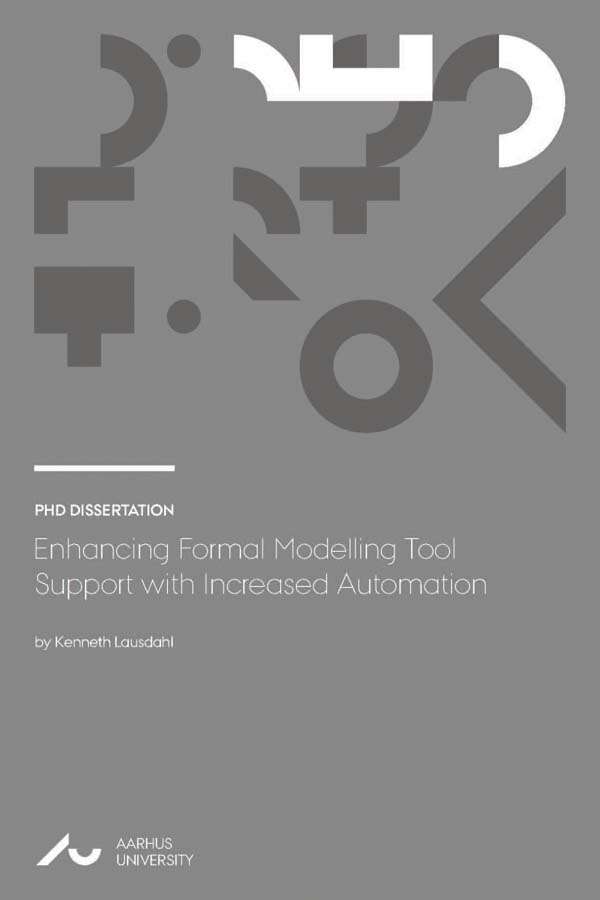River Publishers Series in open
Enhancing Formal Modelling Tool Support with Increased Automation
Author: Kenneth Lausdahl, Aarhus University Department of Engineering, Denmark
e-ISBN: 9788793102026
Available: October 2013
The intrinsic complexity of even simple software systems makes their development
challenging. This is especially true for heterogeneous embedded
control systems that include the constraints of the physical world. Formal
methods and modelling techniques allow software designs to be analysed
and thus contribute to their reliability and robustness. However, industrial
adoption of formal methods is limited by uncertainties related to their cost,
effectiveness and the skills required. This thesis has three areas of focus:
manual labour reduction through automation of various kinds of analysis,
with focus on validation; language translation utilised to exploit existing automated
analysis techniques; and a way to model and simulate embedded
control systems that demand high-fidelity representation of their environment,
based on a sound formal foundation. The result is a collection of contributions
to a modern integrated development environment that can analyse
software specifications and simulate hybrid embedded control systems with
their environment.
language translation
